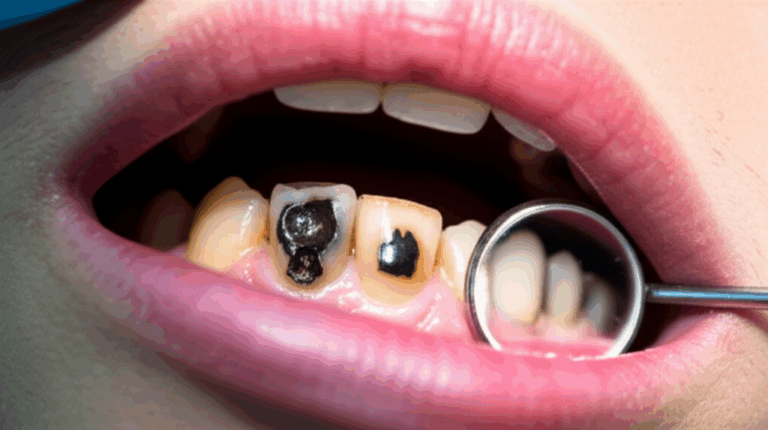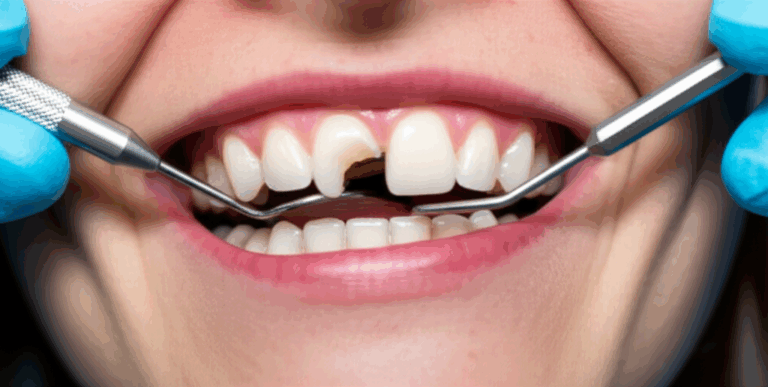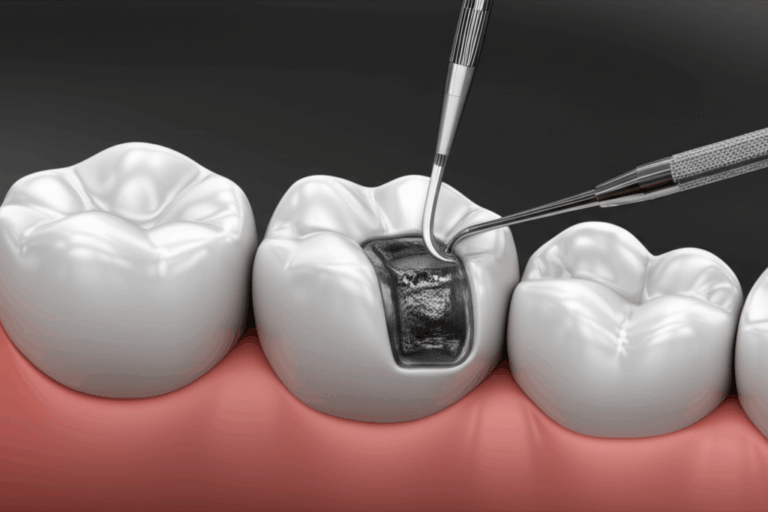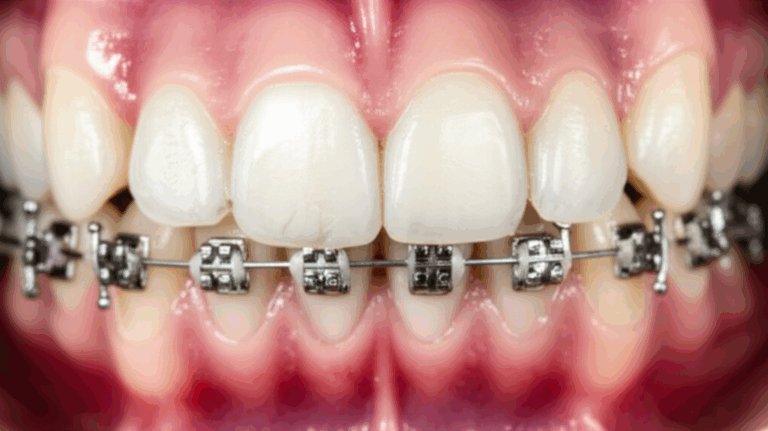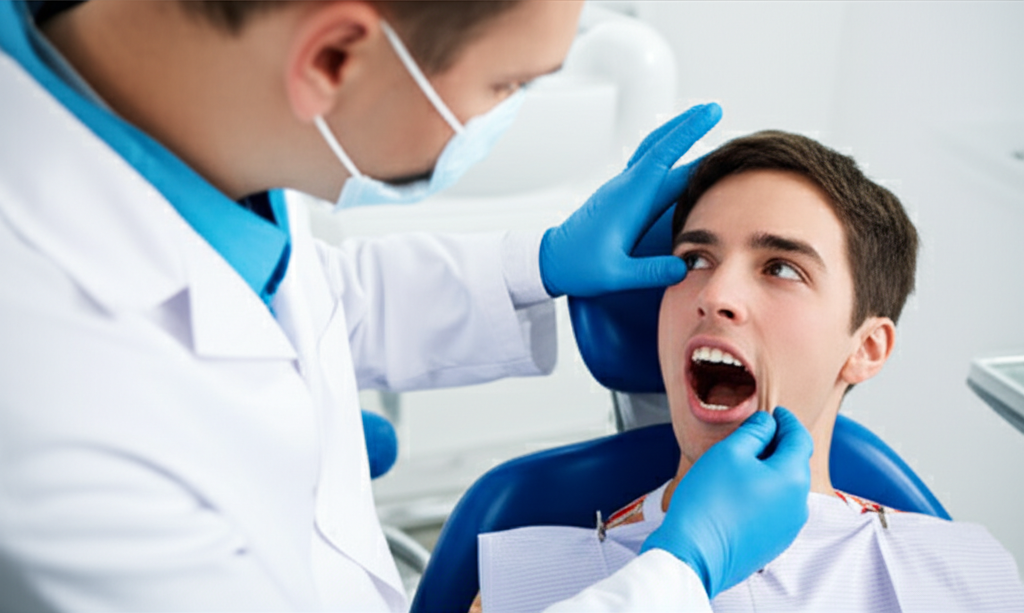
Can a Dentist Fix a Dislocated Jaw? Understanding Treatment & When to Seek Help
That sudden, scary moment when you notice your jaw is stuck open—it’s enough to make anyone freak out. Maybe you yawned too wide, took a hit during a game, or woke up and just felt something was off. The pain is coming from your jaw joint, talking or swallowing feels almost impossible, and you can’t close your teeth together. In that moment, a big question pops up: Can a dentist fix a dislocated jaw? Or do you need to go straight to the ER?
Let’s walk through it together. This guide will break down what’s going on, who can help, how your jaw gets fixed, and what to do next. I’m here to clear up the confusion and help you feel ready to handle it. Let’s start with the main question.
In This Article
- What Is a Dislocated Jaw?
- How to Recognize a Dislocated Jaw: Signs & Symptoms
- Why Did My Jaw Dislocate? The Common Causes
- Can a Dentist Fix a Dislocated Jaw? The Surprising Truth
- ER or Dentist? How to Know Where to Go
- What Happens During Treatment: What You Can Expect
- Healing Up: Recovery and Prevention Tips
- Dislocated Jaw FAQs
- The Takeaway: What to Do Next
What Is a Dislocated Jaw?
First off—what does “dislocated jaw” really mean?
Think of your jaw joint (the temporomandibular joint or TMJ) as a ball and socket, like your shoulder. The mandible (your lower jaw) ends in a round bump called the condyle. This sits in a small socket in your skull called the glenoid fossa, with a little bone ridge, the articular eminence, in front.
When everything’s working well, you can open, close, and move your jaw in all directions to talk, chew, and yawn. But if the condyle slips out of the socket—usually going forward, out past that ridge—that’s a jaw dislocation.
There are a few kinds:
- Unilateral dislocation: Only one side pops out.
- Bilateral dislocation: Both sides get stuck.
- Acute dislocation: Happens suddenly and is new.
- Chronic or recurrent dislocation: Keeps coming back or stays out for a while.
Most jaw dislocations are the condyle slipping forward (anterior dislocation), but they can go back, sideways, or other ways, especially if there’s an injury.
How to Recognize a Dislocated Jaw: Signs & Symptoms
How do you know your jaw is really dislocated and not just sore?
Here are the common signs:
- Jaw locked open: You can’t close your mouth, no matter what.
- Strong pain: It hurts most by your TMJ, just in front of your ear. Sometimes the pain spreads or throbs.
- Trouble talking or eating: Moving your jaw feels odd, hurts, or you can’t do it at all.
- Face looks uneven: Your chin might point to the side, or your bite looks strange.
- Swelling: Around your jaw joint, it might look puffy.
- Loose jaw or easy to slip: If this has happened before.
Sometimes, your jaw will “click” or “pop” if it almost comes out but you can close it again yourself. That’s called a subluxation (partial dislocation).
Other possible signs:
- Drooling (if you can’t close your mouth)
- Trouble swallowing or breathing (rare but serious—get help fast)
If this sounds like what you’re feeling, you might have a jaw dislocation.
Why Did My Jaw Dislocate? The Common Causes
How did this even happen? Here are some usual reasons:
1. Trauma or Injury
- Getting hit in the face during sports, a car crash, falling—anything that hits your jaw hard can do it.
- Sometimes, keeping your mouth open for a long time at the dentist can cause it, especially during long appointments.
2. Opening Your Mouth Too Wide
Stuff like:
- Big yawns
- Laughing really hard
- Serious dental work
- Throwing up or having medical tools in your mouth
3. Certain Medical Problems
Some people are just more likely to have this happen:
- Hypermobility: Being “double-jointed” or having stretchy joints, like folks with Ehlers-Danlos syndrome
- Loose ligaments: Stretchy joint supports
- Teeth grinding or clenching (bruxism): Wears out the jaw joint support
4. Previous Dislocations
Once it’s happened, the jaw can pop out easier again—even if you aren’t opening that wide.
Sometimes, more than one reason is involved. For example, someone with a loose jaw is giggling with their mouth wide open during a dental visit—snap! Out it comes.
Can a Dentist Fix a Dislocated Jaw? The Surprising Truth
Here’s the big question: Can your dentist fix a dislocated jaw?
The Short Answer:
Yes, most general dentists can treat a new, simple jaw dislocation—especially if it happened just from yawning, laughing, or even a dental appointment, and there’s no big injury. But not every case is the same, and sometimes you’ll need a specialist or the ER.
Dentists and Jaw Dislocations: What They Can Do
- Most dentists know the jaw and its problems well.
- For simple, new cases (especially no injury or bleeding), they can usually do a closed reduction—gently moving your jaw back where it belongs.
- Dentists can also look for anything else wrong and help manage pain and swelling.
But dentists can’t do everything. Here’s what to watch for:
If your jaw came out because of a bad accident, or if there might be broken bones, or if you’re having trouble breathing, go straight to the ER. Dentists may not have the right tools or help for those problems.
When do dentists send you to a specialist?
- If you have repeated dislocations (it keeps happening)
- If your jaw is out and you might also have a broken bone
- If they can’t get the jaw back in place at the dental office or you need strong sedation
- If your jaw has been out for a long time (many hours)
- If you need special scans, surgery, or hospital care
Oral and Maxillofacial Surgeons: The Real Jaw Pros
Oral surgeons are the top experts for jaws. They handle:
- Hard or tricky cases (especially if there’s a broken bone)
- Surgery (if simple fixing doesn’t work)
- Chronic or repeating dislocations that need something extra
Who else might help?
- ER doctors: For bad injuries or emergencies
- ENT (ear, nose, throat) doctors or nerve doctors: Rarely, for special nerve or joint issues
- Physical therapists: For help after your jaw is better
ER or Dentist? How to Know Where to Go
If your jaw’s stuck open, you might not know if you should call your dentist or rush to the hospital. Here’s an easy way to decide:
Go to the ER RIGHT AWAY if:
- You had a big injury (car crash, hard fall, got hit)
- There’s a lot of bleeding, other face injuries, or possible broken bones
- You can’t breathe or swallow
- You’ve never had this before, it’s bad, and you can’t reach your dentist
- Your jaw’s been out for many hours
- You’re feeling faint, confused, or very sick
Hospitals have x-rays, CT scans, anesthesia, and specialists on hand for these tough cases.
Call Your Dentist or Oral Surgeon if:
- The jaw came out with no big injury—just a yawn or dental visit
- No bleeding, and breathing and swallowing are okay
- You’ve had this happen before and know the feeling
- You need a check after an ER visit
- Another doctor told you to see them
Dentists often can see you fast for jaw emergencies. If not, they’ll tell you where to go.
Don’t Try to “Pop It Back” Yourself
You might be tempted to fix your jaw in the bathroom mirror. Don’t do it! You can break bones or hurt nerves and blood vessels. Always go to a professional.
What Happens During Treatment: What You Can Expect
You’ve called for help and you’re on your way—here’s what usually happens.
Step 1: Check-Up
The dentist or specialist will:
- Ask what happened (“How did this start?”)
- Look at your jaw: how wide it opens, if it goes side to side, and if there’s any numbness or pain
- Check your bite and look for swelling or bruises
- Sometimes use an X-ray, CT, or MRI to check for broken bones, big damage, or other jaw issues
It’s a hands-on exam, but it’s important.
Step 2: Closed Reduction (Putting the Jaw Back)
For most simple cases, closed reduction is the way to go. Here’s what it looks like:
- Numbing shots around the jaw
- Sometimes muscle relaxers or gentle sedation if you’re very anxious or in pain
- The dentist puts their thumbs inside your mouth (on your back teeth), holding your chin
- They use a soft, down-and-back motion—almost like moving the jaw around a bump and into the socket
- You might feel sudden relief as the jaw slides in (maybe hear a “pop” or “click”)
- You’ll be told to open and close a little, bite down gently, see how it feels
- The dentist checks for any pain, weird movement, or problems
Success rates are really high for new, simple dislocations when fixed cleanly and soon.
Harder cases may need more sedation, another way to fix it, or a trip to an oral surgeon for a bigger procedure.
Step 3: Aftercare
Once your jaw is back, you’re not done yet! Here’s what to expect:
- Rest your jaw: Don’t move it much, talk less, and avoid opening wide for 1–2 weeks.
- Eat soft foods: Things like soup, smoothies, eggs—anything easy to chew.
- Pain control: Over-the-counter meds like ibuprofen or acetaminophen.
- Warm packs: Heat can help the muscles relax.
- Sometimes a jaw wrap: To keep it steady for a few days.
- Jaw exercises: Later on, you might get gentle stretches or exercises from your dentist or a physical therapist.
For Repeating or Ongoing Dislocations
If your jaw keeps coming out, it can be really bothersome. Possible fixes include:
- Custom mouth guards or splints from a dentist—these protect your jaw, especially at night. For teeth grinding, a night guard dental lab might make a good fit.
- Physical therapy: To make jaw muscles stronger
- Botox shots in the chewing muscles—to calm the jaw so it doesn’t pop out easy
- Surgery: As a last step, things like smoothing the bone, tightening the joint, or fixing the TMJ
- Learning tips: You’ll learn to avoid opening your jaw too wide (no giant sandwiches or super big yawns!)
Healing Up: Recovery and Prevention Tips
After your jaw is fixed, healing is usually simple, but take it slow. Here’s how to help:
Recovery Timeline
- Simple, new dislocation: Pain and swelling usually get better in days; full healing takes a week or two.
- Ongoing or tough cases or those needing surgery: Healing will take longer and you might need therapy.
How to Stop Your Jaw From Coming Out Again
- Don’t open wide: Avoid giant yawns or big bites for now.
- Soft food for a week or so—let your jaw take it easy.
- Protect teeth at night: If you grind or clench, get a mouth guard to keep your teeth and jaw safe.
- Tell dentist about your meds: Some medicines can make the jaw loose—let your dentist know.
- Easy jaw exercises: Follow what your dentist or therapist tells you.
- Fix other problems: This can mean dealing with grinding, arthritis, or extra-stretchy joints.
Important: Do what your dentist or oral surgeon says. And go back for your follow-up even if you feel good. Dislocating it again can make it worse next time.
Dislocated Jaw FAQs
Can I fix my dislocated jaw by myself?
No. Forcing your jaw back can break bones or hurt nerves. Always see a pro—and do it quickly.
How long does a dislocated jaw take to heal?
If fixed soon, pain gets better in less than a week, but don’t use your jaw too much for 2–3 weeks. Waiting or having it happen again can make it slower to heal, or turn it into a long-term problem.
Is a dislocated jaw an emergency?
Yes—especially if you can’t breathe, swallow, or had a big injury. Even less severe cases are urgent, so don’t wait days to get help.
What should I eat if I have a dislocated jaw?
Soft foods like yogurt, scrambled eggs, soup, oatmeal, mashed potatoes, and smoothies. Skip crunchy or chewy foods like nuts or steak.
Can my jaw dislocate again?
Maybe. Once it’s happened, you’re more likely to have it happen again. That’s why working with your dentist or oral surgeon to prevent it is important.
The Takeaway: What to Do Next
Let’s wrap up. Here’s what you really need to know:
Main Points:
- A dislocated jaw means your lower jaw comes out of its joint, locking your mouth open, hurting, and making eating or talking hard.
- Dentists can often fix simple dislocations—like those from yawning or a dental visit, with no injury or bleeding.
- The ER is needed for jaw dislocations after injury, with trouble breathing, bleeding, or if the dentist can’t get it back in.
- Treatment usually is a gentle move back in place, rest, eating soft foods, and sometimes using mouth guards.
- Prevent problems by avoiding wide jaw openings, handling any teeth grinding, and sticking to your dentist’s plan.
What should you do now?
If you think your jaw is out of place, don’t wait and hope it’ll go away. Call your dentist or go to urgent care if things are bad. Quick help means faster healing and less chance it’ll happen again.
Want to learn more about TMJ care or dental appliances? Some clinics use a digital dental lab for next-level help.
Stay ready: Save your dentist’s emergency number and learn the warning signs. If you get jaw troubles a lot, talk to an oral surgeon. Getting help fast means an easier recovery and a jaw that stays healthy.
Final Words
Nobody wants to be stuck with a dislocated jaw. But knowing what to do makes a big difference. With quick care and a good plan, you’ll be back to eating, talking, and laughing soon. If your jaw is making you nervous, this guide should help you out.
Take care of your TMJ—it’s the joint that lets you enjoy a big smile!
If you need personal medical advice or have ongoing jaw problems, talk to a real dental pro. This guide is just for learning and can’t replace real medical care if you need it right away.

